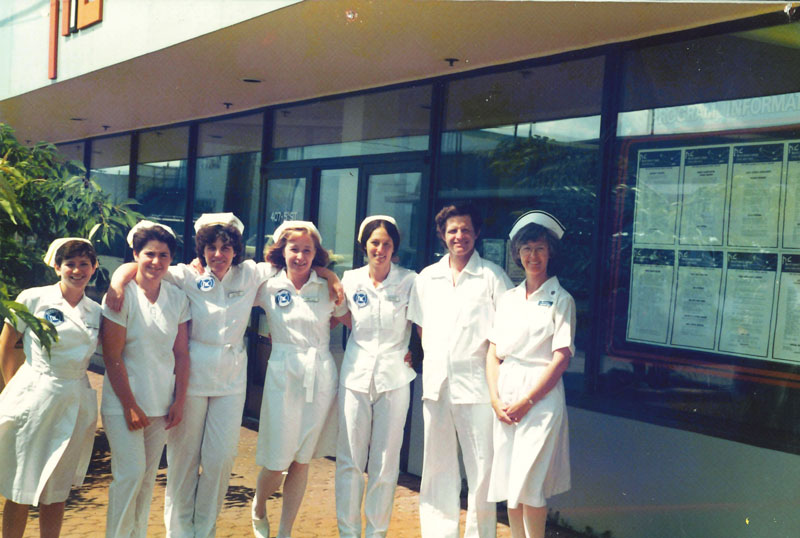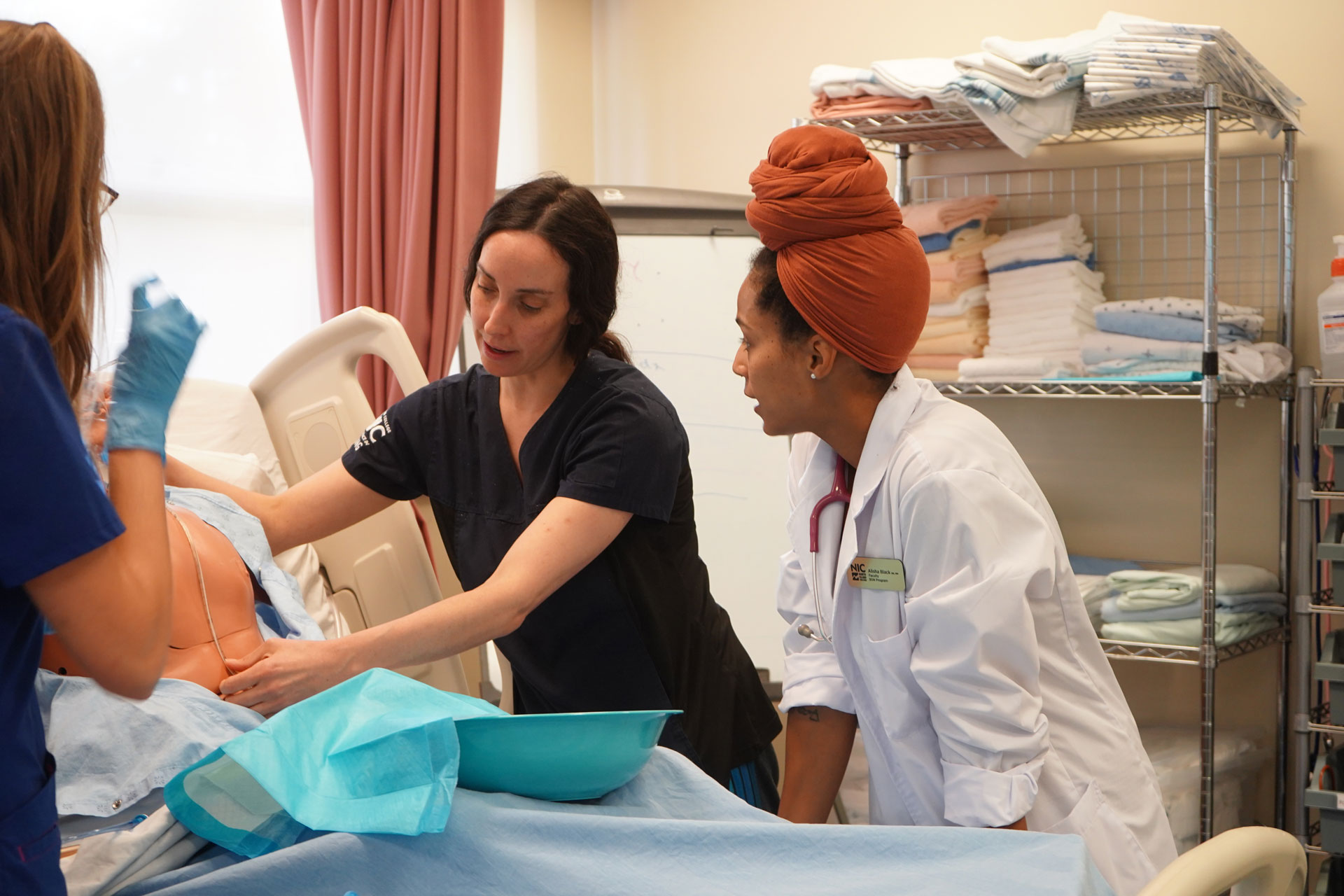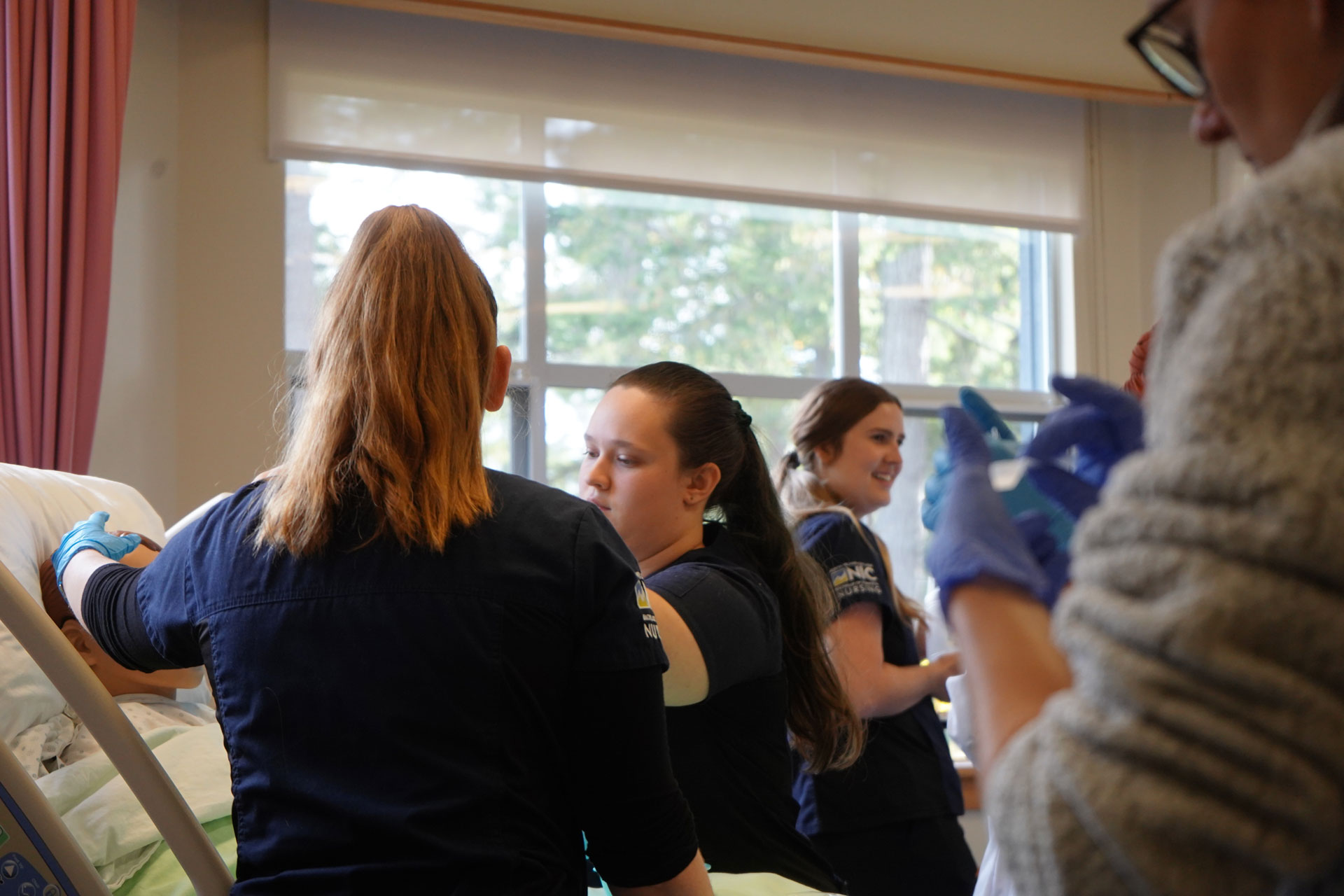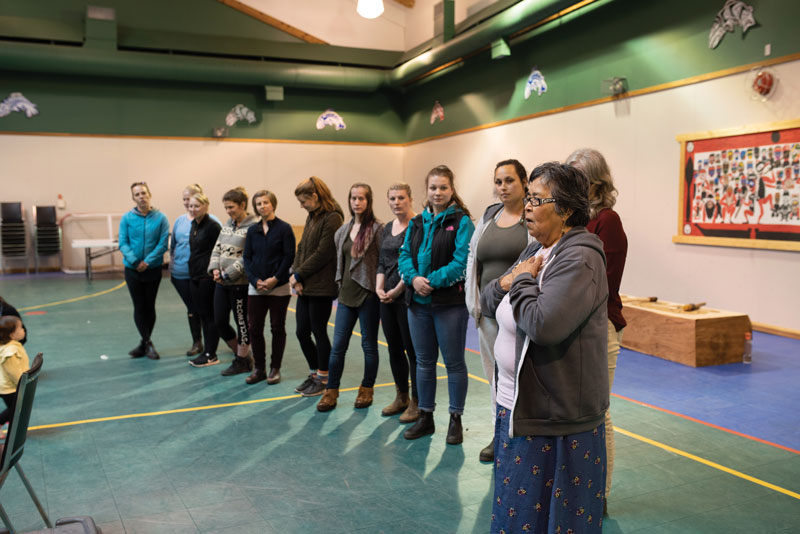Rising with the tides in nursing
Play audio:
North Island College has a long history of responding to the need for nurses in the province.
As a result, few programs at NIC have evolved as much over the years. What started as a small program has grown into several different ones, most notably the Bachelor of Science in Nursing (BSN)—the first degree program at the college.
Registered nursing began at NIC with a five-month refresher course for nurses who were returning to the workplace. By the mid-1980s, the college partnered with the BC Institute of Technology on a program in which students could start the first of a two-year diploma program at NIC. This led to bigger things, and by 1993 nursing students could complete a degree at a partner university or complete a diploma locally.
Bachelor’s degrees became the minimum to working as a registered nurse, and by 2003, NIC launched its four-year degree program in collaboration with Vancouver Island University (then known as Malaspina University-College).
From there, the program has progressed from accepting nursing students on a first-come, first-serve basis to a more competitive process of accepting those with the best grades. Early on, NIC’s grad class for the BSN was small, with six in the first cohort, but in recent years the number has grown to five or six times that. The highest number was 44 in 2020.
With more students, the program’s class space also had to grow to accommodate all those interested in the program.
“Initially, we were teaching at the aquatic centre, and the College then brought in the portables, which is now the Village.” says former dean of Health and Human Services Jocelyne Van Neste-Kenny. “Office space challenging because of the increase in the number of faculty members and office cubicles were created in Puntledge Hall. We also needed additional lab space so we wrote a proposal for a simulation lab, which was accepted and funded. Offering a BSN program required faculty to rapidly develop upper level courses, complete Masters degrees and to engage in research projects. As a result NIC in collaboration with VIU was successful in obtaining accreditation with the Canadian Association of Schools of Nursing (CASN). This was critical in having our program recognized provincially, nationally and internationally. I will always be so proud of how our faculty embraced these changes with such commitment to our program, our students and our community. Today NIC graduates are in practice across our college region.”
The program’s graduates have since been making their mark in the nursing community, while also gaining membership in the Canadian Nursing Students Association (CNSA). According to Health and Human Services Dean Jan Meiers, students quickly got involved in the association at the leadership level after attending one of the organization’s conference. Then, in 2015, student Dawn Tisdale became the CNSA president in her graduating year, becoming the first NIC student to lead a national organization. In her role, Tisdale helped lobby for more Indigenous perspectives to be included in the nursing curriculum.
Another source of pride for people like Meiers is when graduates come back to teach after working in the nursing profession.
“It’s almost like a maternal sense of pride I feel for the students that have come through,” Meiers says. “The faculty of this program celebrate alongside our students in their success; it makes the feeling that much greater.”



